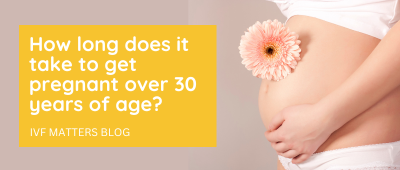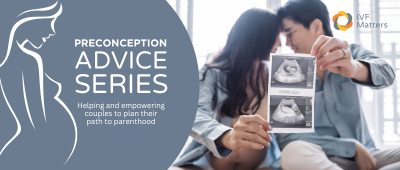Seeking help and advice from a fertility specialist is an important step for individuals and couples experiencing difficulties conceiving.
Whilst the general recommendation is to try and conceive naturally for at least one year before seeking medical intervention, there are certain situations in which it may be beneficial to seek help sooner if you’re struggling to conceive.
Here are some factors to consider when determining when to seek assistance from specialists like Dr Koita and her team at IVF Matters:
Age
Age plays a significant role in fertility, especially for women. Women over the age of 35 may face increased challenges in getting pregnant due to reduced fertility caused by a decline in egg quality and quantity. If a woman is over 35 and has been trying to conceive for six months without success, it is advisable to speak to a fertility specialist. For women over 40, it is recommended to seek assistance after three months of unsuccessful attempts, especially if there are any underlying fertility problems.
Irregular Menstrual Cycles
Women with irregular menstrual cycles, which can indicate hormonal imbalances or ovulation problems, may experience difficulties conceiving naturally. If a woman’s menstrual cycles are consistently shorter than 21 days or longer than 35 days, or if she experiences absent or infrequent periods, it is recommended that she seek medical advice earlier than the one-year timeframe.

Previous Reproductive System Health Issues
Individuals with a history of reproductive health issues, such as polycystic ovary syndrome (PCOS), endometriosis, pelvic inflammatory disease (PID), or previous ectopic pregnancies, may face additional challenges when trying to conceive. In such cases, consulting a fertility specialist earlier in the planning stages can help to identify potential obstacles and develop appropriate personalised treatment plans.
Male Factor Infertility
Infertility is not just an issue affecting women, as male factor infertility accounts for a significant proportion of cases. If a couple suspects that male fertility may be a contributing factor, seeking guidance from your consultant early on can help assess and address any potential male infertility issues.

Known Fertility Issues
If either partner has a known fertility issue, such as a low sperm count, blocked fallopian tubes, or a history of recurrent miscarriages, it is advisable to speak with a fertility consultant as soon as possible to explore the potential causes of infertility. These conditions may require specialised treatments or interventions to increase the chance of a successful conception, pregnancy support and a healthy bouncing baby.
Cancer Treatments
Cancer treatments have a significant impact on fertility and early intervention can provide safe options for preserving your fertility before undergoing any potentially sterilising treatments. Fertility treatment options, such as preservation techniques, may be available to individuals facing cancer treatments, allowing them to maintain the possibility of having children in the future.
Lifestyle Factors
Certain lifestyle factors can negatively impact fertility. These include smoking, excessive alcohol consumption, drug use, obesity and exposure to environmental toxins. If individuals or couples are engaging in these behaviours and experiencing difficulty getting pregnant, it is advisable to seek guidance from a fertility doctor to help address these lifestyle factors and improve your chances of conceiving.
Emotional Distress
Infertility can be emotionally challenging for individuals and couples. If the process of trying to conceive becomes overwhelming, seeking help from a compassionate clinic like IVF Matters can provide emotional support and guidance. Our fertility specialists and counsellors are experienced in dealing with the psychological impact of infertility and can offer support to help cope with the emotional aspects of the journey.

Summary
Unless you are aware of any of the aforementioned medical issues - the general consensus for seeking fertility support and giving yourself a good chance of reaching your goals are:
- Under 35 years of age - seek help if you have not conceived within one year
- Over 35 years of age - seek help if you have not conceived within six months
- Over 40 years of age - seek assistance if you have not conceived within three months.
Ultimately, the decision to seek help and advice from a fertility clinic really depends on your individual circumstances and concerns.
It is important to remember that there is no one-size-fits-all approach, and seeking professional assistance early can help identify and address any possible reasons why you’re struggling to conceive and, ultimately, guide you on the path to increasing your chances of a successful conception.
If you wish to discuss anything with Dr Koita, you can book a FREE ADVISORY CONSULTATIONhere.
Alternatively, if you would like support before you start planning a pregnancy, Dr Koita offers a unique preconception advice service Prep4Pregnancy which supports you as a couple, with a personalised plan and tailored advice to increase your chances of conceiving naturally within just 3 months.






